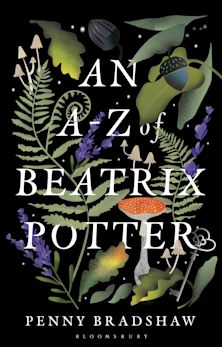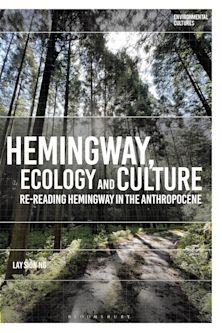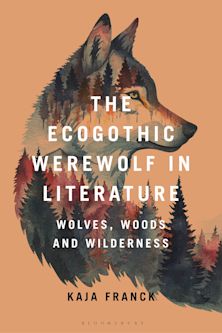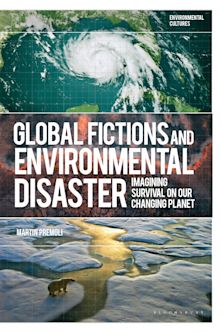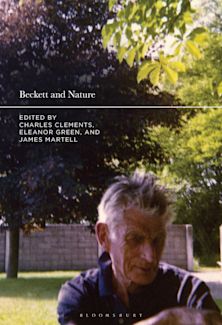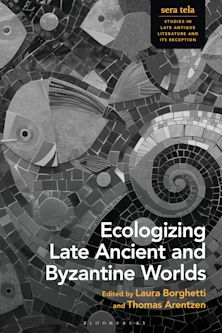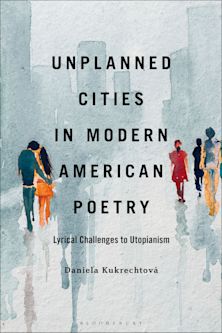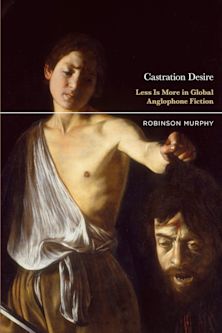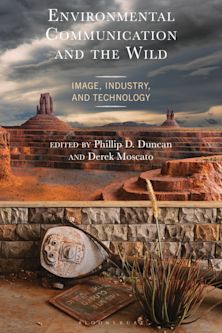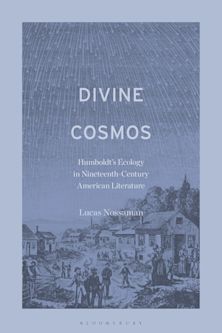- Home
- ACADEMIC
- Literary Studies
- Environmental Humanities/Literature and the Environment
- Environment and Pedagogy in Higher Education
Environment and Pedagogy in Higher Education
Lucie Viakinnou-Brinson (Anthology Editor) , Monika Giacoppe (Contributor) , Simona Muratore (Contributor) , Gisela Hoecherl-Alden (Contributor) , Jennifer Peterson (Contributor) , Laura Davis (Contributor) , Elizabeth Giddens (Contributor) , Rina Garcia Chua (Contributor) , Vanessa Slinger-Friedman (Contributor) , Christina Gerhardt (Contributor) , Lucie Viakinnou-Brinson (Contributor)
Environment and Pedagogy in Higher Education
Lucie Viakinnou-Brinson (Anthology Editor) , Monika Giacoppe (Contributor) , Simona Muratore (Contributor) , Gisela Hoecherl-Alden (Contributor) , Jennifer Peterson (Contributor) , Laura Davis (Contributor) , Elizabeth Giddens (Contributor) , Rina Garcia Chua (Contributor) , Vanessa Slinger-Friedman (Contributor) , Christina Gerhardt (Contributor) , Lucie Viakinnou-Brinson (Contributor)
You must sign in to add this item to your wishlist. Please sign in or create an account
Description
The commitment to participate in ecological protection has grown considerably and, in the academic world, it has been tackled primarily by the Social Sciences. The Humanities has followed suit and several books have dealt with the reasons why such commitment is essential and morally imperative. What has been crucially lacking, however, are books that propose concrete pedagogical approaches to the study of environmental issues and aim at inspiring and motivating both educators and students to become actively engaged in the pursuit of ecological preservation.
It is here that this book comes into play. Faced with the polluting of the earth, the devastating effect of climate change, and the inequalities of North/South resources to counter the throes of environmental degradation, our responsibility as educators and in particular as eco-pedagogues is to engage in theoretical discourses on the subject matter but also to begin to provide practitioners in all fields with essential tools to shape an ecological sense of consciousness among future leaders of the earth: our students.
Table of Contents
Chapter 1. Knowing Our Place. Teaching World Literature and Environmental Issues
Monika Giacoppe
Chapter 2. The Language of Italian Food and the Flavors of Sustainability: Think Globally,
Act Locally
Simona Muratore
Chapter 3. Communication, Culture and Cuisine: Teaching Sustainability through Food in an Undergraduate Language Curriculum
Gisela Hoecherl-Alden and Jennifer Peterson
Chapter 4. Weaving Gender and the Environment in a Team-taught Ecofeminism Course
Laura Davis and Elizabeth Giddens
Chapter 5. The Germination of Ecological Literacy in a Third World Nation
Rina Garcia Chua
Chapter 6. Using Active and Applied Pedagogies to Develop Sustainably Minded Citizens in Geography
Vanessa Slinger-Friedman
Chapter 7. Walking, We Ask Questions: Experiential Learning and Environmental Humanities
Christina Gerhardt
Product details
| Published | Oct 15 2018 |
|---|---|
| Format | Ebook (Epub & Mobi) |
| Edition | 1st |
| Extent | 186 |
| ISBN | 9781498531085 |
| Imprint | Lexington Books |
| Illustrations | 2 b/w illustrations; 1 table |
| Series | Ecocritical Theory and Practice |
| Publisher | Bloomsbury Publishing |
About the contributors
Reviews
-
At a time when programs in language, literature, and culture find themselves in the midst of change, Environment and Pedagogy in Higher Education is an invitation to envision new course offerings. The essay collection offers an eclectic introduction that many colleagues will welcome to creative pedagogies, experiential activities, and interdisciplinary models designed to engage students in learning about environmental perspectives and sustainability practices through the humanities.
Charlotte Melin, University of Minnesota
-
Environment and Pedagogy in Higher Educationprovides a refreshing blend of interdisciplinary approaches to teaching sustainability in the classroom that will lead students to a greater understanding of complex environmental issues and informed activism grounded in theory. While making clear connections to students’ lives and opening their worldviews, the anthology shares lessons from a range of fields that provide a unique breadth and depth to teaching sustainability, particularly within the humanities.
Annette Lucksinger, St. Edward's University















